One Woman in Pune Turned 100,000 Kg of Waste Paper Into Notebooks for Kids Who Couldn’t Afford Them
“I used to share notebooks with my brother because my parents could not afford more of them,” says Bhagwat Kuber, a 17-year-old student from Government High School in Shivane, a semi-urban area on the edge of Pune.
With limited resources at home, he often scribbled on torn sheets or reused old school books just to complete his classwork. It was not a lack of will or intelligence to study; it was a shortage of basic resources.
This challenge, common among children from low-income families, has sparked a movement that is redefining how waste is viewed and how it can be repurposed for social good. That movement is called Little Leaf.
The woman who saw potential in paper waste
Little Leaf was founded by Pritu Chaudhary, a commerce graduate from Varanasi, whose vision went beyond recycling paper. Growing up in Varanasi, she was disturbed by the sheer amount of waste — particularly paper and plastic — that littered her surroundings. This concern stayed with her through her education and later while working at an import-export company between 2012 and 2017. But her heart was always drawn to social service, especially towards underprivileged children struggling to afford basic educational materials.
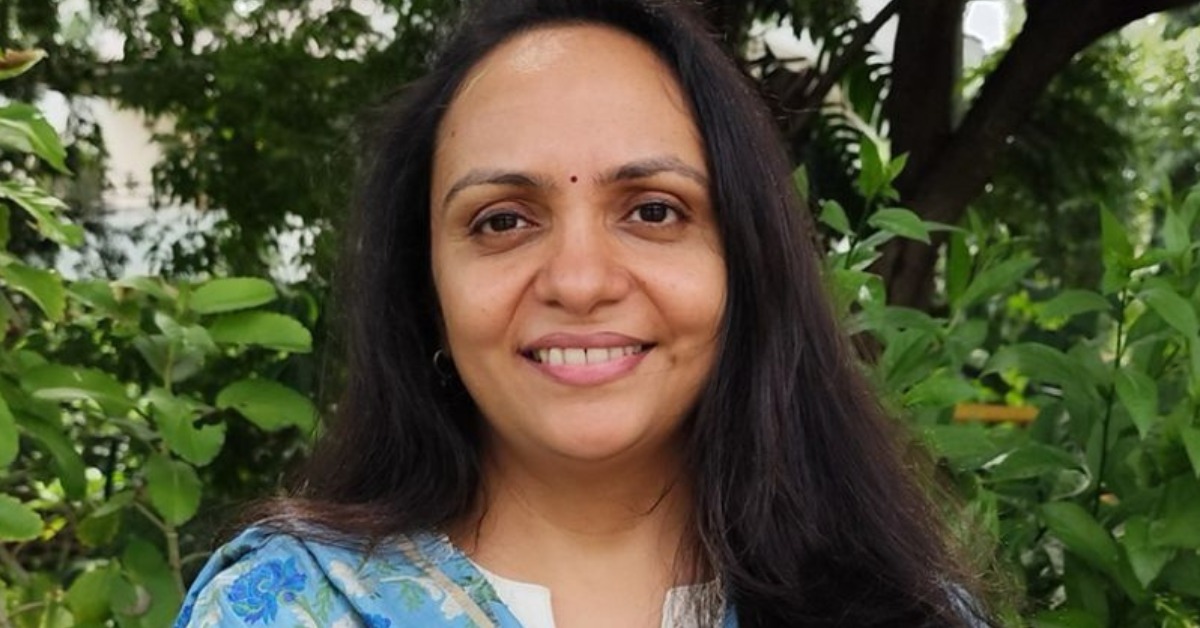 Little Leaf was founded by Pritu Chaudhary in 2014 in Varanasi
Little Leaf was founded by Pritu Chaudhary in 2014 in Varanasi
“I was motivated by the idea of doing something meaningful for society,” Pritu tells The Better India, her voice warm but resolute. “I feel waste is not just rubbish; it is an opportunity to create something valuable that benefits both the environment and society.”
This motivation culminated in the founding of Little Leaf on 2 October 2014. Initially based in Varanasi, the NGO began by collecting waste paper from households and handing it over to recycling companies. Soon, however, the idea evolved.
Pritu discovered manufacturers who could turn recycled paper into notebooks. Seeing an opportunity to close the loop, she envisioned a system where waste paper could be collected, recycled, and converted into notebooks for children who otherwise could not afford them.
“It was a humble beginning with the strength to change many futures,” she explains.
Little Leaf does not directly recycle paper or manufacture notebooks. Instead, it facilitates the entire process — educating communities about segregating dry waste, encouraging donations, and ensuring the recycled output is channelled back as affordable notebooks for underprivileged children.
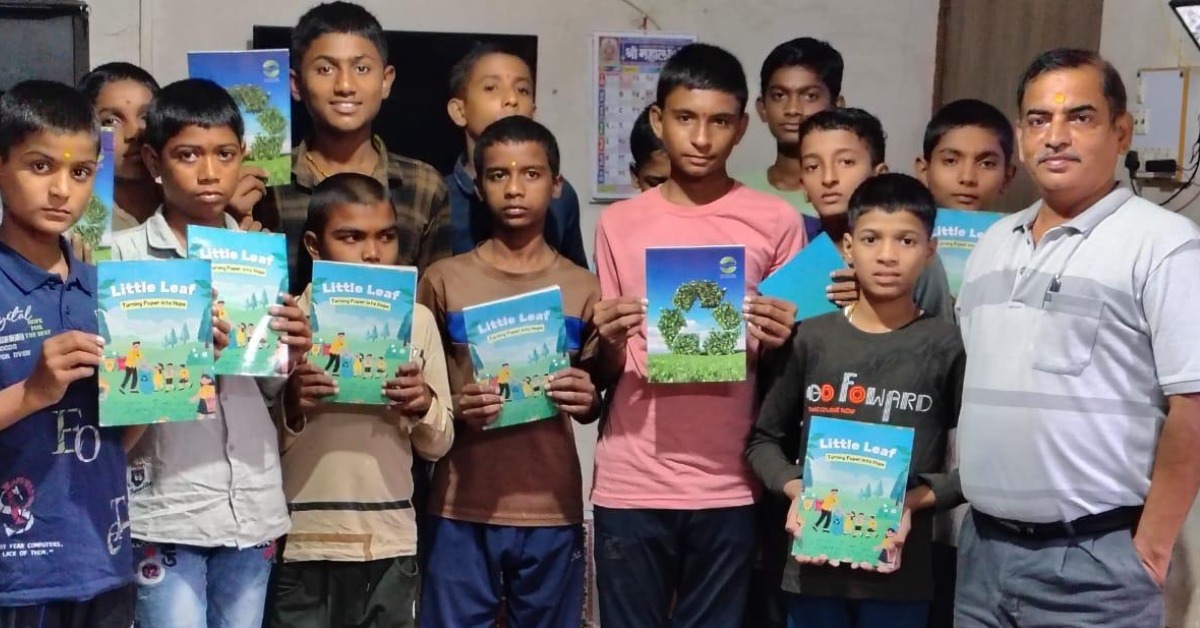 Pritu discovered manufacturers who could turn recycled paper into notebooks and provided them to children in need
Pritu discovered manufacturers who could turn recycled paper into notebooks and provided them to children in need
From its roots in Varanasi, the organisation expanded to Pune in 2018, where it continues to grow steadily.
Give paper, get a notebook — or gift one
A distinctive feature of the initiative is its incentive system. “For every two kilograms of paper donated, donors can either receive one recycled notebook themselves or have it donated directly to a child in need,” Pritu explains. “This choice empowers donors, building a sense of ownership and community involvement.”
To reduce the carbon footprint of collections, Little Leaf accepts donations starting from ten kilograms of paper. Once this threshold is met, donors contact the team, and a vehicle is arranged to collect the paper from their doorstep, free of cost.
“Many people were initially reluctant to segregate or donate paper,” she admits. “But when we explained how recycled notebooks could return to them or be given to children, people felt connected. It is a small act with a lasting impact.”
The outcomes are multifaceted. Recycling waste paper helps reduce landfill burden and the environmental hazards linked with it. “To make just one tonne of virgin paper, we lose around 10 to 15 fully grown trees,” Pritu explains. “And that is not all — it also consumes nearly 45 to 50 cubic metres of clean water, which is a huge environmental cost.”
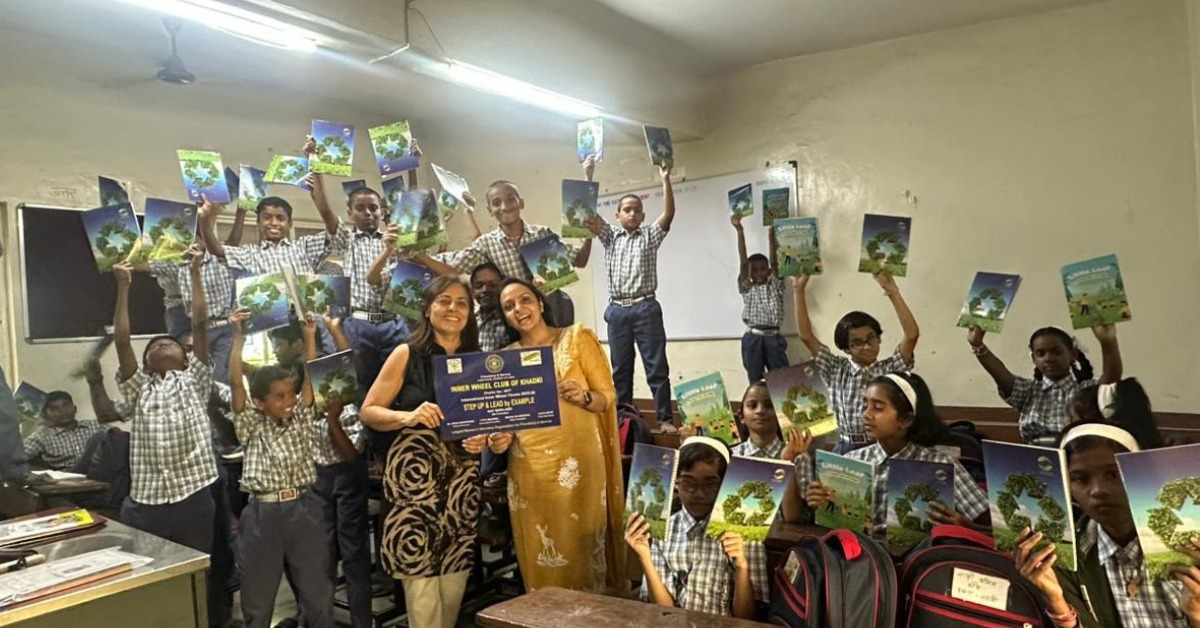 Pritu always wanted to help underprivileged children who could not afford the basic resources
Pritu always wanted to help underprivileged children who could not afford the basic resources
In contrast, recycled paper production requires no fresh trees and far less water. “With recycled paper, we are using waste as a resource. All we need is about 1,100 kilograms of discarded paper to make the same amount, and just four to five cubic metres of water. The difference is massive,” she says.
The recycling units Little Leaf works with are chosen not just for efficiency but for eco-conscious processes. “The three manufacturers we collaborate with in Varanasi and Pune treat and reuse water during production. It is not just about recycling — it is about doing it the right way,” she adds.
The emotional impact of giving notebooks
“The environmental benefits extend beyond numbers. Each notebook given to a child is a message that we care about the planet and their future. That motivates everyone involved, from donors to manufacturers,” Pritu notes.
The organisation’s reach extends well beyond waste management. It touches the lives of countless children who receive notebooks — many from families where education is a luxury.
Shivani Madan, a 15-year-old student from GMI Khadaki school in Pune, shares, “Before receiving notebooks, it was difficult to keep track of different subjects because I had to write everything in one notebook. Now, I have one for each subject, and it makes learning easier.”
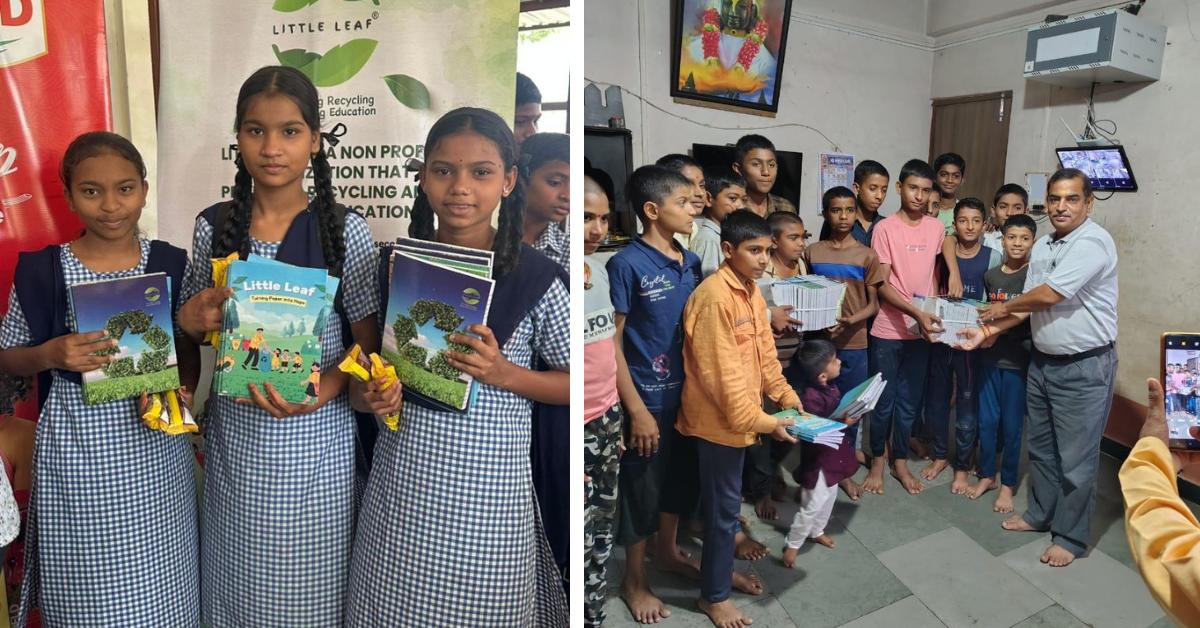 Each notebook given to a child is a message that Little Leaf cares about the planet and their future
Each notebook given to a child is a message that Little Leaf cares about the planet and their future
Naitik Balpande, 16, also studying in Pune, adds, “Receiving these recycled notebooks makes me feel excited, like getting a gift. It motivates me to learn more.”
For Bhagwat, too, the change is life-altering. “Now, I do not miss school because I have what I need to study properly. It has made a huge difference,” he says.
These stories highlight how the notebooks are not just resources, but symbols of hope and encouragement.
Changing society’s view on waste
The journey was not without challenges. At first, Pritu struggled to convince people about the importance of segregating paper and donating it. Many were unaware that newspapers, old records, bills, craft paper, and even packaging like toothpaste boxes could all be recycled.
Through workshops, awareness drives, and word of mouth, attitudes began to shift. “The change in mindset is perhaps the biggest achievement,” she reflects. “People now see waste as an asset. They ask us how to segregate better and how to donate regularly. That shift is heartening.”
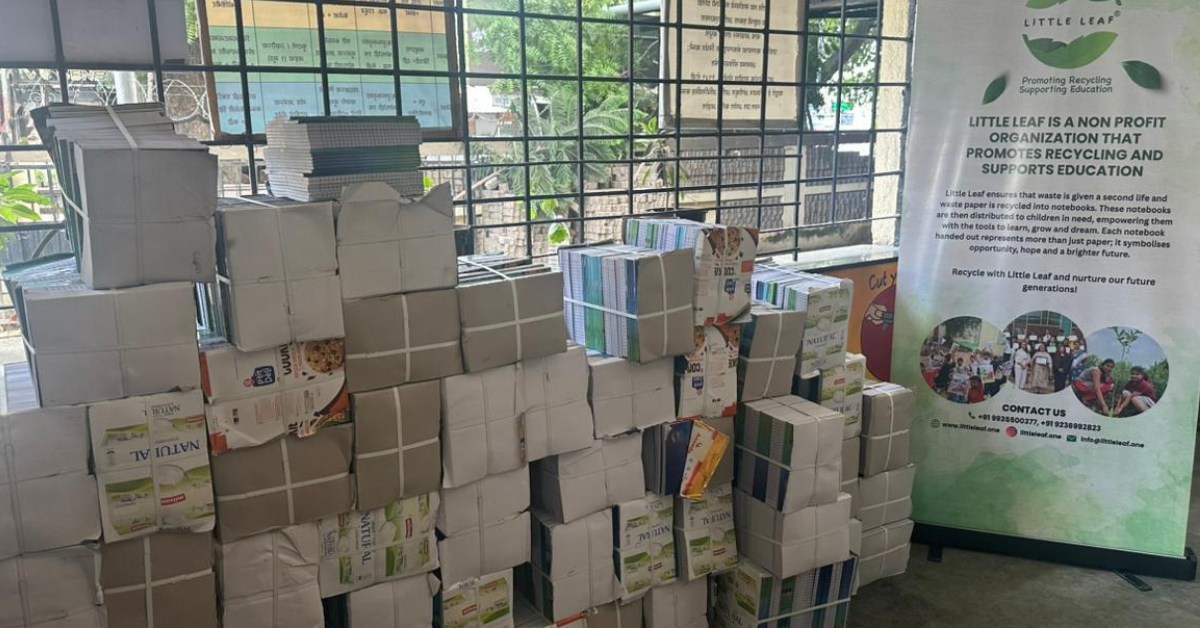 Little Leaf has recycled over 100,000 kilograms of waste paper over the years
Little Leaf has recycled over 100,000 kilograms of waste paper over the years
Support soon came from schools, corporations, and housing societies. Companies like BMW, Honda, and Weikfield donate regularly. Schools such as Bharati Vidyapeeth Rabindranath Tagore School of Excellence in Pune and G.D. Goenka in Lucknow contribute consistently, while housing societies like Kumar Sanctum in Pune mobilise residents effectively.
Swati Ganesh Shitole, from a food manufacturing company in Wagholi, praises the initiative: “Little Leaf aligns perfectly with our corporate social responsibility goals. Our employees feel proud to be part of this cause. Segregation is done as per the SOPs, and the management has received very positive feedback.”
Nitu Gupta, from the Kumar Sanctum residents’ committee, adds, “Before, segregation was a challenge because mixed waste from 68 flats made collection difficult. After we mandated segregation at source and started working with Pritu, the response has been remarkable. Residents now consciously keep paper waste separate and donate it. The initiative has led to a noticeable shift in behaviour and awareness.”
Regular awareness seminars sustain this momentum. Residents and their helpers are guided on segregation, with reminders sent before weekly collections. Initial scepticism has now turned into enthusiastic participation.
“The secret is constant engagement,” Pritu explains. “Apart from collecting paper, we educate and inspire people to keep the initiative alive.”
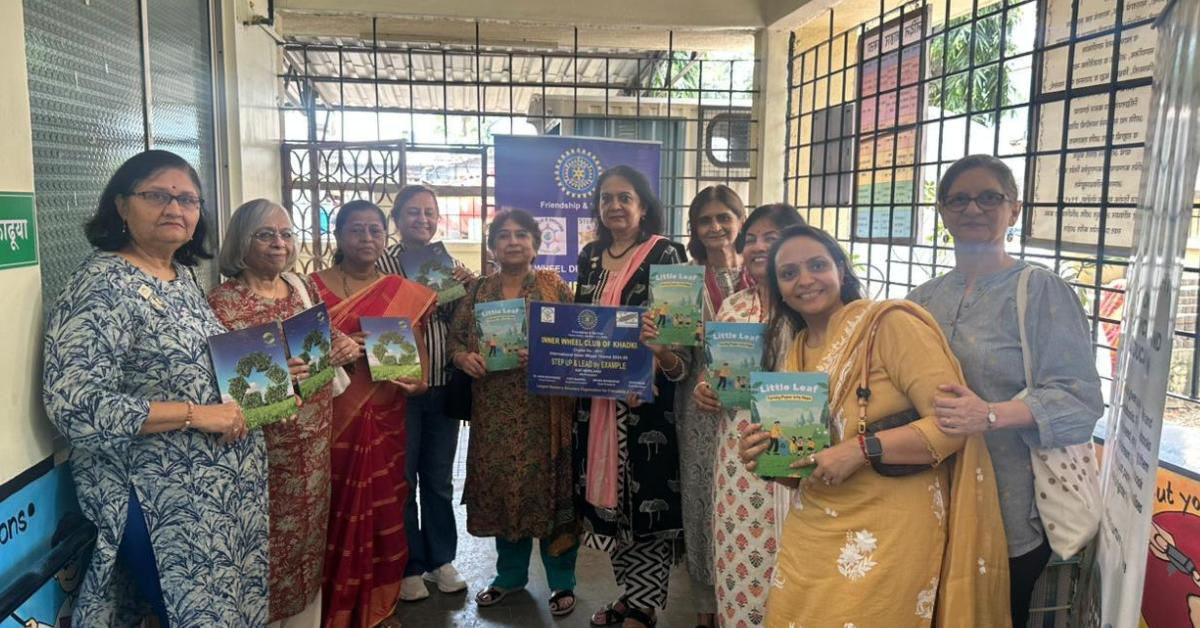 Pritu provides the recycled notebooks to underprivileged children as well as to those who donate waste paper
Pritu provides the recycled notebooks to underprivileged children as well as to those who donate waste paper
A movement that inspires hope
Since its inception, Little Leaf has recycled over 100,000 kilograms of waste paper. It also provides shredding facilities for sensitive documents, maintaining strict confidentiality and ensuring recycling happens directly with trusted manufacturers.
Distribution drives, organised with partners such as the Inner Wheel Club of Khadki, FICCI Flo Pune, and Robin Hood Academy, have reached schools including GMI Girls School, PMC School Dhobawadi, and Kilbil e-Learning School in Wagholi — benefitting thousands of children. In 2024, Little Leaf donated approximately 3,000 notebooks, and in 2025, it has already crossed 5,000, with more drives planned.
Bhagwat sums it up best: “Everyone who recycles waste paper plays a part in giving us hope and keeping us motivated.”
Little Leaf proves the power of grassroots initiatives supported by community engagement and individual volunteers. With just three to four volunteers managing operations, the organisation has built long-term impact.
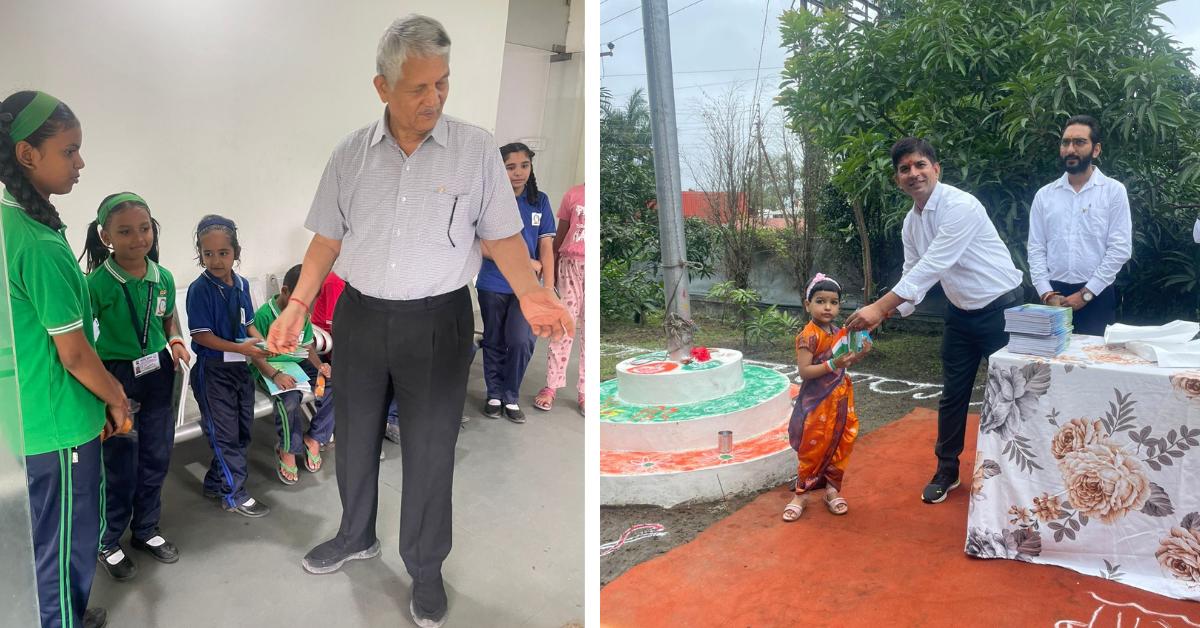 In 2024, Little Leaf donated approximately 3,000 notebooks, and in 2025, it has already crossed 5,000 notebooks
In 2024, Little Leaf donated approximately 3,000 notebooks, and in 2025, it has already crossed 5,000 notebooks
Looking ahead, Pritu envisions expanding the network nationwide. “The dream is that every schoolchild in need has a notebook, and every household understands the power of recycling,” she says with determination.
All pictures courtesy Pritu Chaudhary
News